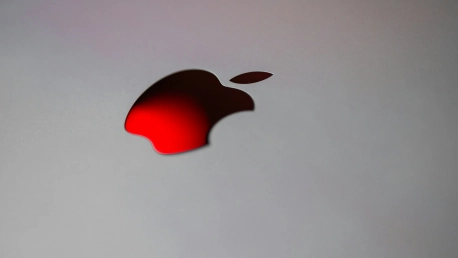Apple has consistently been at the forefront of cybersecurity, striving to protect its users from various digital threats. In recent years, one of the most pressing concerns has been the threat of mercenary spyware, which is often sophisticated and specifically targeted. The company has taken extensive measures to counter these threats, ensuring that iPhone users receive timely alerts and are equipped to take necessary precautions.
Apple’s Notification Campaigns
Alerting Users Globally
Apple’s recent notification campaign has alerted iPhone users in 98 countries about potential mercenary spyware threats. This is part of an ongoing initiative that began in 2021, aimed at warning users of cyber threats. The notifications are designed to inform affected individuals about the seriousness of these threats and to take necessary precautions. Apple’s systematic global warnings reflect the company’s commitment to safeguarding its users. By notifying users in multiple countries, the company showcases the widespread nature of these cybersecurity threats. The campaign emphasizes the need for constant vigilance in protecting personal and professional data, reflecting the seriousness with which Apple treats these sophisticated attacks.Apple’s approach to alerting users involves more than just sending out notifications; it includes detailed advisories on how to respond to these threats. Those who receive warnings are urged to update their devices, scrutinize app permissions, and enable all security features provided by Apple. This comprehensive approach not only informs users but also equips them with the tools to defend against such attacks effectively. By acting swiftly and efficiently, Apple manifests its dedication to maintaining the security and integrity of its ecosystem, reinforcing its reputation as a leader in the realm of cybersecurity.
Evolution of Notification Tactics
Since 2021, Apple has been fine-tuning its notification processes to ensure efficient and effective communication. The company’s recent shift from labeling these incidents as “state-sponsored” to “mercenary spyware attacks” indicates a strategic move to address both state and commercially driven cyber threats more broadly. This linguistic shift reflects the evolving nature of cyber threats. By broadening the scope of identified threats, Apple aims to provide a more comprehensive picture of the dangers users face. This approach also underscores the importance of adapting communication strategies to align with the latest threat landscapes and enhance user understanding and responsiveness.The evolution in Apple’s communication also mirrors the dynamic and increasingly sophisticated tactics employed by cyber attackers. By acknowledging the role of mercenary spyware, Apple highlights the commercial motivations behind many of these attacks, which often involve private firms selling spyware to various clients. This broader recognition allows for a nuanced understanding of the threat landscape, helping users and the tech industry to better prepare and respond. Apple’s updated tactics demonstrate a clear alignment with the goal of staying ahead in the constantly shifting battleground of cybersecurity, arming users with the knowledge they need to protect themselves effectively.
Focus on Internal Threat Intelligence
Apple’s Rigorous Approach
Apple relies on its internal threat intelligence to detect mercenary spyware attacks. This independent approach allows the company to maintain tight controls over its cybersecurity processes, ensuring a quick and effective response to emerging threats. The reliance on internal resources highlights Apple’s commitment to thorough cybersecurity measures. By developing and maintaining robust internal threat detection mechanisms, Apple can swiftly identify and address potential risks, minimizing the impact on users. This serves as a testament to Apple’s dedication to investing in top-tier security intelligence and harnessing its vast technological prowess to protect its user base.The sophisticated nature of cyber threats demands a vigilant and proactive approach to cybersecurity. Apple’s internal intelligence team employs advanced techniques and tools to detect even the most covert spyware activities. This rigorous approach is not just about defense but also involves understanding the attack vectors and methodologies used by cybercriminals. By staying ahead of potential threats through continuous research and development, Apple remains a step ahead in the cybersecurity domain. This proactive stance ensures that iPhone users are safeguarded against even the most advanced forms of digital espionage and mercenary spyware threats.
Balancing Secrecy and Transparency
One of the challenges Apple faces is balancing the need for transparency with the risk of revealing too much about its detection methods. The company’s advisories often stress the sensitivity of their identification techniques, cautioning users to refrain from publicizing specific details that could aid attackers. This careful balance is crucial for maintaining effective cybersecurity defenses. By keeping certain aspects of their strategies confidential, Apple can ensure that attackers do not exploit known detection methods, thus preserving the integrity of their defense mechanisms. This approach underscores the complexity of modern cybersecurity, where transparency must be weighed against the potential for exploitation by malicious actors.The balancing act between secrecy and transparency also involves carefully crafted communication to users. Apple provides enough information to alert and educate users without disclosing specifics that could compromise their security systems. This methodology is integral to ensuring that users remain informed and vigilant while maintaining the robustness of Apple’s security infrastructure. By practicing this nuanced form of communication, Apple underscores its role as a responsible guardian of its users’ data, ensuring that its cybersecurity measures are both effective and resilient against evolving threats.
Impacts and Examples: Focus on India
High-Profile Targets
In India, several high-profile individuals have received warnings from Apple about potential spyware attacks. Journalists, politicians, and human rights activists are among those targeted, highlighting the specific roles or activities that make individuals attractive targets for attackers. The focus on specific roles underlines the targeted nature of these attacks. It suggests that mercenary spyware is used strategically to gather intelligence from individuals who are likely to possess sensitive or valuable information. This trend is not limited to India but is indicative of a global strategy employed by cyber attackers, emphasizing the tailored and methodical approach taken by those deploying mercenary spyware.These targeted attacks in India bring to light the broader implications of how spyware is used across different regions to stifle dissent, manipulate information, and invade privacy. High-profile targets in India have often been critical voices or influential figures, making them prime targets for entities looking to control narratives or extract confidential data. The revelations about such targeted attacks reaffirm the necessity for robust security measures and continuous vigilance, not just by corporations like Apple but by the users who are at the receiving end of these sophisticated threats. This focus illustrates the broader need for global awareness and collaboration in countering such pervasive cyber threats.
Pegasus Spyware Exposure
The notorious Pegasus spyware, developed by the Israeli firm NSO Group, has been detected on the devices of prominent figures in India. This spyware is infamous for its ability to infiltrate mobile devices and extract vast amounts of data without the user’s knowledge. The exposure of Pegasus underscores the advanced capabilities of modern spyware. It also highlights the need for robust defense mechanisms and user vigilance in safeguarding personal data. Apple’s notifications play a significant role in alerting users to such sophisticated threats and advising on necessary precautions. This case exemplifies the critical role that timely alerts and user awareness play in tackling such advanced security threats.The Pegasus spyware scandal has had far-reaching consequences, affecting not just individual privacy but also national security and political dynamics. The deployment of such a powerful espionage tool demonstrates the lengths to which certain actors will go to obtain critical information. The fallout from the Pegasus spyware has led to heightened scrutiny and increased calls for better regulatory frameworks to govern the use of such technologies. Apple’s intervention through user notifications and its broader cybersecurity efforts epitomize the proactive measures needed to combat such threats. This also reinforces the importance of maintaining and continually upgrading security protocols to counterbalance the evolving sophistication of spyware tools like Pegasus.
User Advisories and Best Practices
Emphasizing User Vigilance
Apple’s advisories consistently stress the importance of user vigilance. Users are encouraged to take the warnings seriously and to follow the prescribed steps to secure their devices and personal information. User vigilance is a crucial component in combating cyber threats. By staying informed and proactive, users can mitigate potential risks. Apple’s emphasis on user behavior reflects an industry-wide understanding that individual actions play a pivotal role in maintaining digital security. This proactive approach seeks to empower users with the knowledge and tools needed to safeguard their information, making them an integral part of the defense against cyber threats.Encouraging user vigilance also involves educating users about common attack vectors and precautionary measures. Apple provides detailed guidance on recognizing phishing attempts, ensuring device software is always up to date, and employing strong, unique passwords. This comprehensive educational approach helps users develop a more profound understanding of cybersecurity, enabling them to stay one step ahead of potential threats. By fostering a culture of vigilance and awareness, Apple not only enhances individual security but also contributes to a broader, more resilient digital ecosystem where users are active participants in their protection.
Recommended Precautions
Apple advises users to take several precautionary measures, such as keeping their software up-to-date, using strong passwords, enabling two-factor authentication, and being cautious of unsolicited communications. These steps are critical in protecting against potential spyware attacks. Staying updated with the latest software versions is particularly important, as these updates often include patches for newly discovered vulnerabilities. A combination of robust security practices and timely updates can significantly enhance a user’s defense against mercenary spyware threats. This multifaceted approach ensures that users are well-equipped to maintain the security of their devices and personal information.Preventative steps like using strong passwords and enabling two-factor authentication add additional layers of security, making it significantly harder for attackers to compromise user accounts. Apple’s emphasis on cautious communication practices also educates users to recognize and avoid potential phishing attempts, which are often the first step in spyware deployment. These recommended precautions, when diligently followed, greatly reduce the risk of falling victim to sophisticated cyber-attacks. Apple’s proactive guidelines demonstrate the critical interplay between company-led cybersecurity measures and user responsibility, underlining the collective effort required to combat increasingly intricate cyber threats.
Broader Implications for the Tech Industry
Collaborative Efforts
Apple’s proactive stance is reflective of a larger trend within the tech industry, where companies are increasingly collaborating to strengthen cybersecurity infrastructures. Tech giants are pooling resources and sharing intelligence to create a united front against evolving cyber threats. Collaboration among tech companies is vital in addressing the sophisticated and ever-changing nature of cyber threats. By working together, these companies can leverage collective knowledge and expertise to develop more effective defense strategies, thereby enhancing overall digital security. This collaborative approach also underscores the recognition that cybersecurity is a shared responsibility, necessitating joint efforts to safeguard global digital ecosystems.Joint initiatives and information sharing between tech companies enable faster identification and mitigation of emerging threats. These collaborative efforts have led to the development of more advanced security tools and protocols, benefiting the industry as a whole. Moreover, public-private partnerships often extend these collaborative measures, involving governments and international bodies to create comprehensive defense mechanisms. These synergies exemplify the evolving approach to cybersecurity, where the collective effort of various stakeholders is harnessed to counter the growing sophistication of cyber threats, with Apple playing a pivotal role in spearheading these initiatives.
Industry-Wide Trends
Apple has long been a leader in cybersecurity, aiming to protect its users from a variety of digital threats. In recent times, a particularly urgent issue has been the rise of mercenary spyware—highly sophisticated malware that is often specifically engineered to target particular individuals or groups. Such spyware can infiltrate devices, steal information, and compromise personal security. Recognizing the severe risk posed by these threats, Apple has implemented a range of robust measures designed to counteract them effectively. These initiatives include constant advancements in their security technologies and rigorous vetting processes for app developers to ensure that malicious software can’t easily slip through. Moreover, Apple provides iPhone users with timely alerts and crucial information, enabling them to take immediate actions to mitigate potential risks. By continuously updating their operating systems and incorporating advanced security features like end-to-end encryption and biometric verification, Apple ensures that its users have the strongest possible defense against emerging digital threats, including mercenary spyware.









